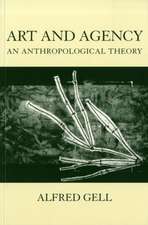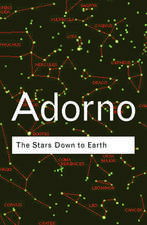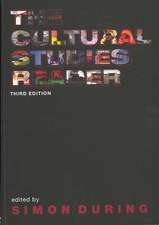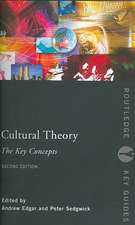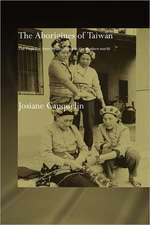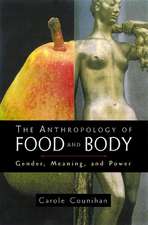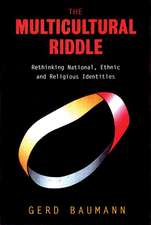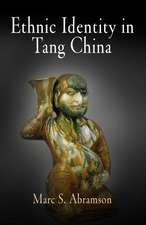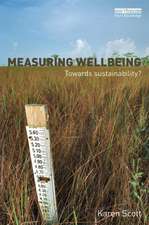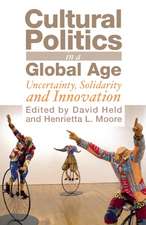Coffee Culture: Local Experiences, Global Connections: Routledge Series for Creative Teaching and Learning in Anthropology
Autor Catherine M. Tuckeren Limba Engleză Hardback – 2 feb 2017
| Toate formatele și edițiile | Preț | Express |
|---|---|---|
| Paperback (1) | 345.95 lei 6-8 săpt. | |
| Taylor & Francis – 2 feb 2017 | 345.95 lei 6-8 săpt. | |
| Hardback (1) | 1110.74 lei 6-8 săpt. | |
| Taylor & Francis – 2 feb 2017 | 1110.74 lei 6-8 săpt. |
Preț: 1110.74 lei
Preț vechi: 1354.56 lei
-18% Nou
Puncte Express: 1666
Preț estimativ în valută:
212.61€ • 231.02$ • 178.71£
212.61€ • 231.02$ • 178.71£
Carte tipărită la comandă
Livrare economică 21 aprilie-05 mai
Preluare comenzi: 021 569.72.76
Specificații
ISBN-13: 9781138933026
ISBN-10: 1138933023
Pagini: 188
Ilustrații: 26
Dimensiuni: 178 x 254 x 17 mm
Greutate: 0.5 kg
Ediția:Revised
Editura: Taylor & Francis
Colecția Routledge
Seria Routledge Series for Creative Teaching and Learning in Anthropology
Locul publicării:Oxford, United Kingdom
ISBN-10: 1138933023
Pagini: 188
Ilustrații: 26
Dimensiuni: 178 x 254 x 17 mm
Greutate: 0.5 kg
Ediția:Revised
Editura: Taylor & Francis
Colecția Routledge
Seria Routledge Series for Creative Teaching and Learning in Anthropology
Locul publicării:Oxford, United Kingdom
Cuprins
Part One: Coffee Culture, Social Life and Global History 1. Culture, Caffeine, and Coffee Shops 2. Theories of Food and Social Meanings of Coffee 3. Coffee Culture, History, and Media in Coca-Cola Land 4. Tracing Coffee Connections 5. Coffee and the Rise of the World System 6. Coffee, the Industrial Revolution, and Body Discipline Part Two: Accolades and Antipathies: Coffee Controversies through Time 7. Coffee Controversies and Threats to Social Order 8. National Identities and Cultural Relevance 9. Hot and Bothered: Coffee and Caffeine Humor 10. Is Coffee Good or Bad for You? Debates over Physical and Mental Health Effects Part Three: Coffee Production and Processing 11. Planting and Caring for Coffee 12. Harvesting, Processing, and Inequality 13. Environmental Sustainability of Coffee Production 14. Environmental Conundrums of Coffee Processing Part Four: Markets and the Modern World System 15. Market Volatility and Social Calamity 16. Efforts to Mitigate the Coffee Cycle and the Distribution of Power 17. A Brief History of Fair Trade 18. Conundrums of Fair Trade Coffee: Building Equity or Reinventing Subjugation?
Recenzii
Although concern about the qualities of the more than 6 billion cups of coffee imbibed every year continues to rise among many, until recently questions of human rights, sustainability, and justice were seriously considered by only a handful of engaged scholars, citizens, and farmers. In this ambitious biography of the bean, Catherine Tucker reminds us that, "We are linked physically, symbolically, and economically through the production, distribution, and consumption of coffee." Tucker’s research compares the theoretical insights gained from anthropology, sociology, and food studies to explain how coffee production, trade, and profits helped to build nations, influence local environments, and shape patterns of global inequality. She critically analyzes recent industry trends and engages efforts to create an alternative coffee economy, including the rise of Starbucks and fair trade. Cross-cultural comparisons are grounded in the everyday experiences of coffee drinking, and elucidated through Tucker’s accessible prose.
Christopher M. Bacon, Associate Professor of Environmental Studies Santa Clara University
Catherine Tucker should be congratulated for her excellent and vivid book on coffee consumption. It was carefully written after field research on various farms, notably in Honduras (p. 139). Each chapter concludes with some highlights and summary questions. We understand that coffee is socially constructed, just like any kind of food, and perhaps more than any other commodity. Thus, five years after its first edition, Catherine Tucker’s Coffee Culture, 2nd ed. is more relevant than ever.
Yves Laberge, Ph.D, Department of Visual Arts, University of Ottawa, Ottawa, Canada, Electronic Green Journal, Issue 41, Spring 2018,
Christopher M. Bacon, Associate Professor of Environmental Studies Santa Clara University
Catherine Tucker should be congratulated for her excellent and vivid book on coffee consumption. It was carefully written after field research on various farms, notably in Honduras (p. 139). Each chapter concludes with some highlights and summary questions. We understand that coffee is socially constructed, just like any kind of food, and perhaps more than any other commodity. Thus, five years after its first edition, Catherine Tucker’s Coffee Culture, 2nd ed. is more relevant than ever.
Yves Laberge, Ph.D, Department of Visual Arts, University of Ottawa, Ottawa, Canada, Electronic Green Journal, Issue 41, Spring 2018,
Descriere
Coffee Culture: Local experiences, Global Connections explores coffee as (1) a major commodity that shapes the lives of millions of people; (2) a product with a dramatic history; (3) a beverage with multiple meanings and uses (energizer, comfort food, addiction, flavouring, and confection); (4) an inspiration for humor and cultural critique; (5) a crop that can help protect biodiversity yet also threaten the environment; (6) a health risk and a health food; and (7) a focus of alternative trade efforts. This book presents coffee as a commodity that ties the world together, from the coffee producers and pickers who tend the plantations in tropical nations, to the middlemen and processors, to the consumers who drink coffee without ever having to think about how the drink reached their hands.














